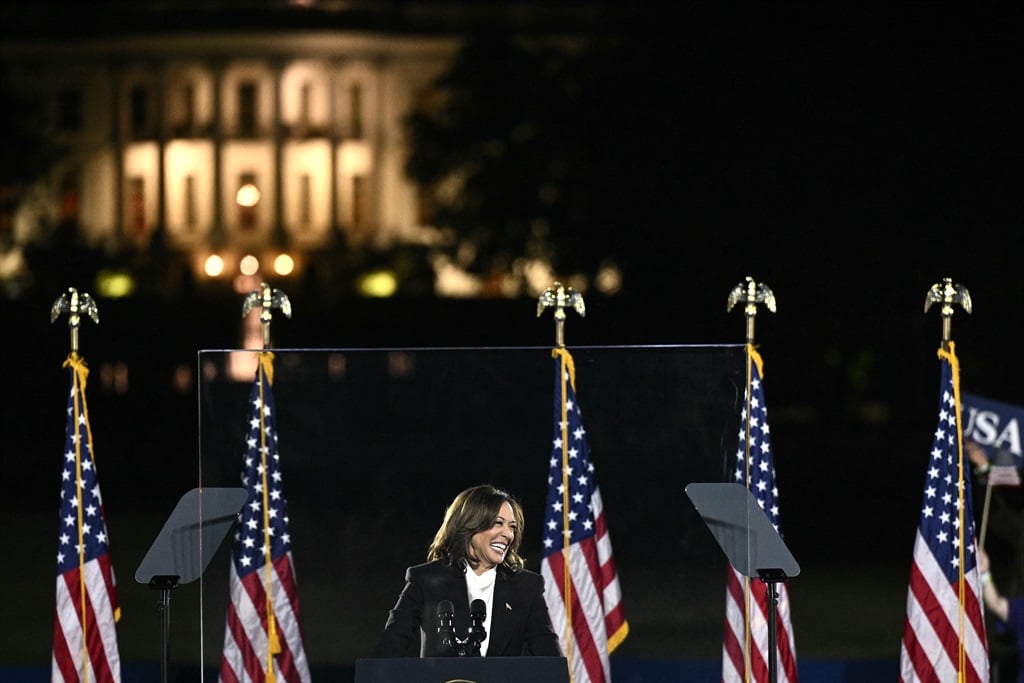Alvaro Dominguez for BI
This post originally appeared in the Insider Today newsletter.You can sign up for Business Insider’s daily newsletter here.
Welcome back to our Sunday edition, a roundup of some of our top stories.
Sorry to disappoint, but it’s me again. Matt Turner is on parental leave, so you’re stuck with me for the next few months.
Buying a home is an absolute disaster, but this 19-year-old real-estate agent has a unique way of showing you homes quickly.
On the agenda today:
Credit-card rewards are turning us all into jerks.The results of Sam Altman’s long-awaited basic-income study are out.Gen Zers love Duolingo, the world’s meanest app.Some founders are putting their dreams on hold to try corporate life.
But first: Investors have got some questions.
If this was forwarded to you, sign up here. Download Insider’s app here.
This week’s dispatch
Stocks could see a double-digit correction within the next three months, according to one veteran strategist.
Getty Images; Jenny Chang-Rodriguez/BI
Show me the profits
As businesses continue to figure out ways to leverage generative AI, investors are starting to wonder: How can this help the bottom line?
For almost two years, companies have jumped headfirst into generative AI. The push hasn’t come cheap due to expensive GPUs and sought-after talent.
But concerns have been quickly brushed away. After all, this is the next digital revolution, akin to the early days of the internet. Overspending is bad, but you know what’s worse? Getting left behind.
However, this week we saw real pushback from investors at that spend-at-all-costs mindset.
Alphabet executives were pressed on if its AI overviews summarizing Google Search results were generating ad revenue. Elon Musk’s promises of robotaxis and full self-driving technology couldn’t quell concerns about Tesla’s underlying fundamentals.
On Wednesday, The Information reported that OpenAI could be on track to lose as much as $5 billion this year, based on an analysis of its costs including the expense of running and training large language models behind the company’s AI.
The pressure will continue to ratchet up as Apple, Microsoft, Amazon, and Meta — all big spenders on AI projects — report earnings next week. Nvidia, which will report at the end of August, is preparing to show examples of how clients are making money using its AI chips.
But investors can only get so aggressive. The market has largely been built over the past few years on the promise of AI. To abandon it now could pose an even bigger risk than spending a bit more than they’re comfortable with.
Getty Images; Alyssa Powell/BI
No, really, dinner’s on me
Credit-card rewards have never been better, and for good reason. They’re a great way to attract customers, who love to rack them up.
But our beloved benefits may come with a hidden cost to our relationships. When everyone’s rushing to foot the dinner bill — and reap the card-purchase rewards — it doesn’t take much for the whole affair to get ugly.
The personal cost of credit-card perks.
Getty Images; Jenny Chang-Rodriguez/BI
Sam Altman’s basic-income study is out
The experiment, one of the largest of its kind, offered participants $1,000 a month for three years, no strings attached.
Recipients increased their monthly spending, but put the bulk of their extra income towards food, rent, and transportation. Researchers, however, said they found no “direct evidence” of improved physical or mental health among participants.
Also read:
The golden age of overemployment is over. Job jugglers are preparing for life with only one income.
Alvaro Dominguez for BI
The mean and the meme-worthy
Duolingo’s sassy green spokes-owl is something of a social media influencer. It has a discernible personality and an online presence that users can’t get enough of.
Though some users deplore its “emotional blackmail” marketing tactics — likening them to psychological abuse in some extreme cases — the Duolingo owl’s nagging has helped propel the company to record profits. Love him or loathe him, the owl’s got rizz.
Getty Images; Alyssa Powell/BI
Founders’ dreams on hold
Amid a tech downturn that’s seen some 3,200 venture-backed startups go under, some early-stage founders are temporarily shelving their startup dreams and going to work as corporate employees.
Though most eventually want to return to the startup space, they say the quality of life is far superior to the never-ending pressure and sleepless nights of being a founder. “It’s almost relaxing to have someone else tell me what to do,” one ex-founder said.
This week’s quote:
“It’s almost like wearing a vest, except this is an addictive substance.”
— Mark Moran, a former Lazard banker, on the ubiquity of Zyn usage across Wall Street.
More of this week’s top reads:
Google awarded a gold bomber jacket and spot bonuses for workers’ “golden prompts” for AI.Gen X is in charge now. Boomers are being shown the door.She was laid off in her 50s. She’s found it’s been harder to bounce back than before.Nine AI startups Hollywood and Big Tech firms are watching.Here’s where Kamala Harris stands on AI, Big Tech, crypto, and more.Thanks to a “good government job,” this 70-year-old is living it up in retirement.The foolproof fix for America’s housing crisis? Fewer stairs.Big Tech’s phony Trumpism.They used to rule the stock market like gods. Now their days of domination are over.Meet the 13 leaders driving Nvidia’s massive success.
Nickelback, Post Malone, Chris Brown, and other stars took COVID cash despite their accountants’ initial concerns about ‘perjury’ and ‘perception problems,’ court documents say.
The Insider Today team: Dan DeFrancesco, deputy editor and anchor, in New York. Jordan Parker Erb, editor, in New York. Lisa Ryan, executive editor, in New York. Amanda Yen, fellow, in New York.





+ There are no comments
Add yours